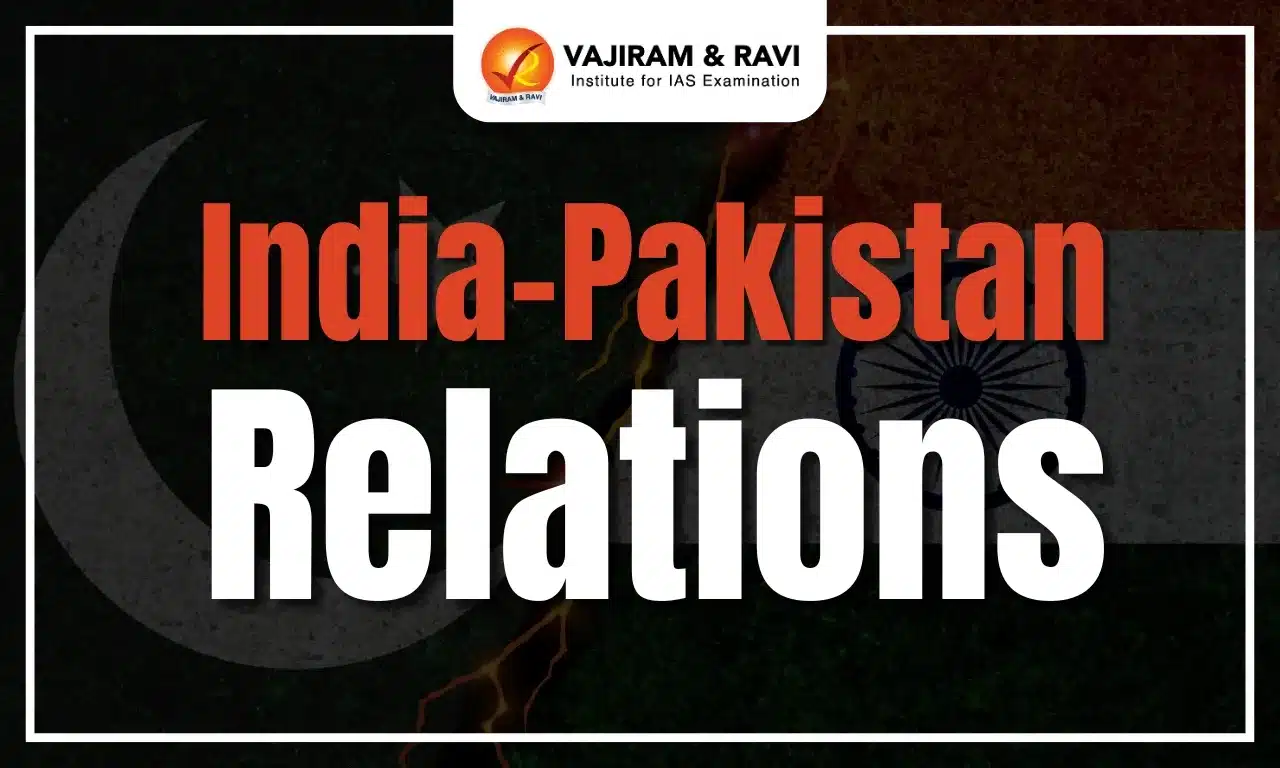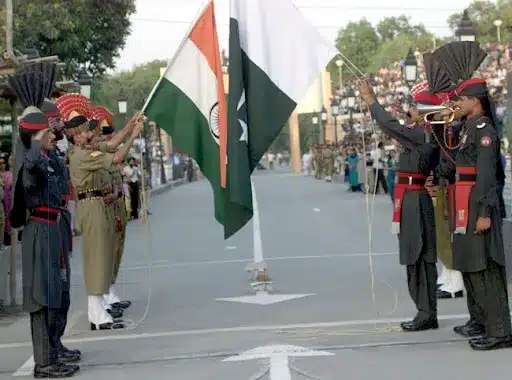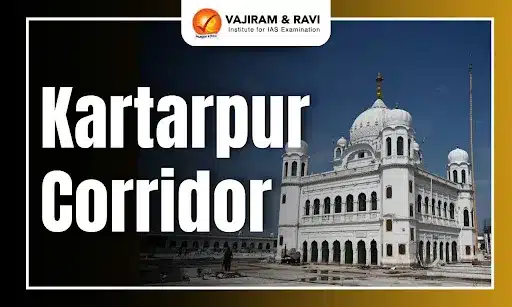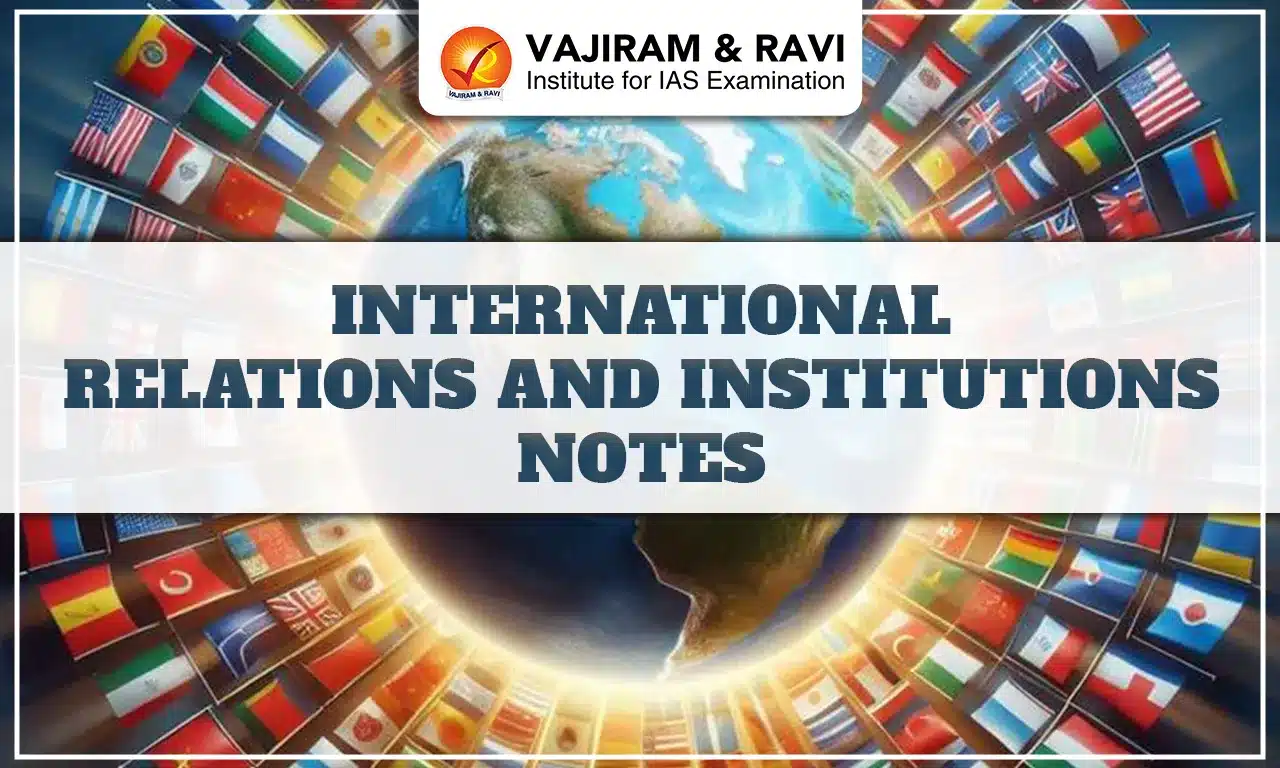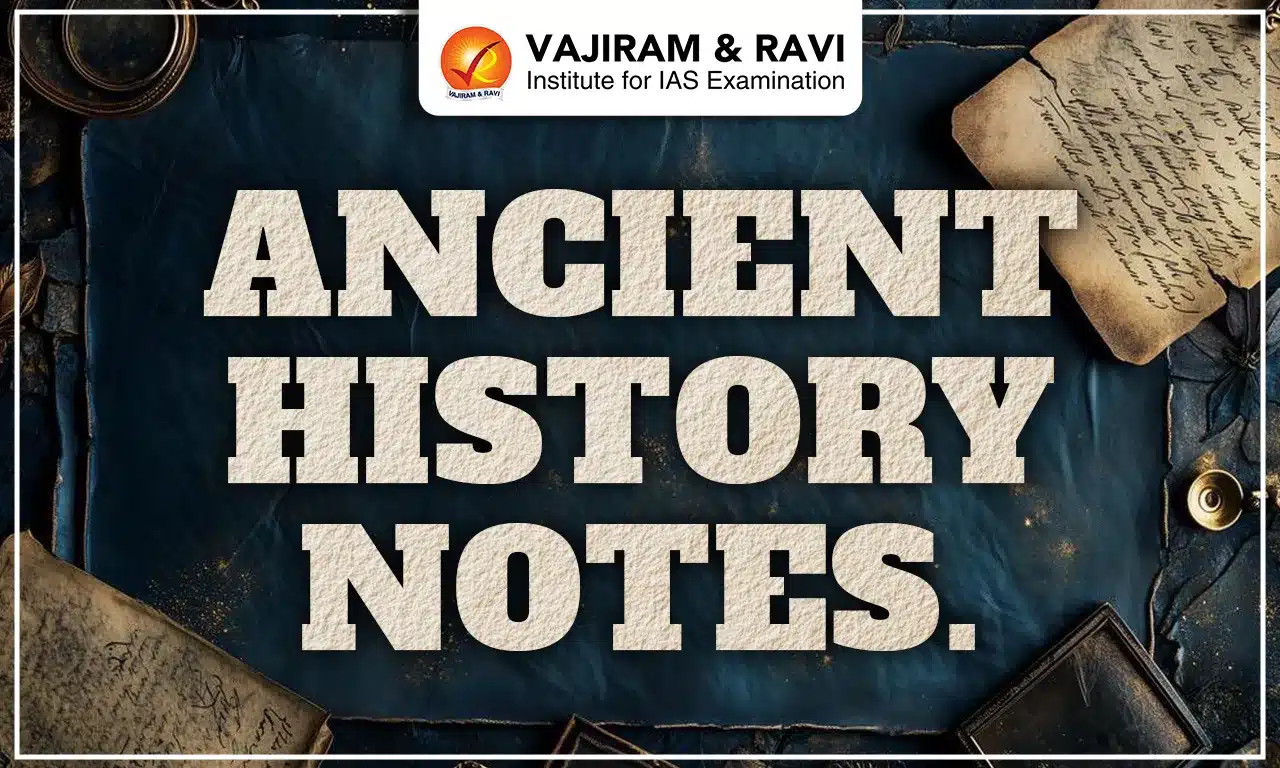India Pakistan relations have been marked by a complex blend of historical grievances, territorial disputes, and moments of diplomatic engagement. Since the partition of British India in 1947, both countries have experienced frequent periods of conflict and limited cooperation.
India Pakistan relations remain one of South Asia's most critical geopolitical issues, affecting regional stability, global diplomacy, and economic potential. Over the decades, the bilateral relationship has been marked by wars, cross-border terrorism, and intermittent diplomatic engagements.
The recent Pahalgam terror attack in April 2025, allegedly carried out by Pakistan-based terror outfit, resulted in the tragic loss of lives, majorly including civilian tourists. In response, India launched ‘Operation Sindoor’ on 7 May 2025, a coordinated counter-terrorism offensive aimed at neutralizing the infiltrators and dismantling their infrastructure. The operation also signaled a shift towards a more assertive security doctrine, underlining India's zero-tolerance policy towards terrorism and cross-border militancy.
India Pakistan Relations Background
India Pakistan relations background have deep historical roots, extending even before the partition of British India in 1947. During the colonial era, growing political and religious divisions, fueled by the British policy of “divide and rule,” set the stage for communal tensions between Hindus and Muslims.
- The demand for a separate Muslim homeland, led by the All-India Muslim League under Muhammad Ali Jinnah, eventually culminated in the creation of Pakistan.
- The partition itself in 1947 marked a traumatic beginning to bilateral relations, triggering massive violence, forced migration, and deep-seated animosity.
- Since independence, the India-Pakistan boundary stretches approximately 3,323 kilometers, including the Line of Control (LoC) in Jammu and Kashmir.
- The primary flashpoint has remained the Kashmir dispute, which has led to four major wars (1947, 1965, 1971, and 1999), along with numerous skirmishes and ceasefire violations.
- The role of international players in India-Pakistan bilateral issues has been significant, although indirect. The United Nations (UN) has consistently advocated for a peaceful resolution, especially regarding the Kashmir dispute.
- The United States has played a key role in mediation through facilitated dialogue and back-channel diplomacy. China’s influence through its strategic alliance with Pakistan also impacts bilateral dynamics.
- Persistent issues such as cross-border terrorism, ceasefire violations, and mutual political suspicion have continued to strain ties. Despite occasional peace dialogues and confidence-building measures, the relationship remains fragile, impacting regional security in South Asia.
India Pakistan Relations Timeline
India-Pakistan relations timeline is marked by major events including the 1947 Partition, wars in 1947, 1965, 1971, and 1999, peace talks, terror attacks like Pulwama and Pahalgam, and fluctuating diplomatic and military tensions. Following is the India Pakistan relations timeline:
- Partition of India and the First Kashmir War (1947-1948): The partition led to territorial disputes, particularly over the princely state of Jammu and Kashmir. Both nations fought their first war over the region in 1947-48, resulting in the establishment of the Line of Control (LoC).
- Wars of 1965 and 1971: The 1965 war was again centred around Kashmir, while the 1971 war led to the creation of Bangladesh, with India playing a crucial role in the secession of East Pakistan (now Bangladesh).
- Nuclear Tests (1998): Both India and Pakistan became declared nuclear powers in 1998, which heightened tensions but also led to international calls for diplomacy to prevent escalation into nuclear conflict.
- Kargil Conflict (1999): In 1999, both countries engaged in the Kargil conflict, sparked by the infiltration of Pakistani soldiers into Indian territory in Kashmir. The conflict ended with India's military victory, but further strained bilateral relations.
- Terror Attacks in the 2000s: In 2001, an armed attack was carried out on the Indian parliament in New Delhi by LeT and JeM. Further, in 2008, a major armed attack was carried out by terrorists in Mumbai, who opened fire on victims at many sites.
- The 2016 Pathankot airbase attack by JeM further soured bilateral relations
- Uri Attack: The Uri attack occurred on September 18, 2016, when four heavily armed terrorists struck an Indian Army base in Jammu and Kashmir’s Uri sector. The assault prompted India to conduct surgical strikes across the Line of Control, targeting terror launch pads.
- Pulwama Attack: On February 14, 2019, a suicide bomber from Pakistan-based Jaish-e-Mohammed targeted a CRPF convoy in Pulwama, Jammu and Kashmir, killing 40 personnel. This deadliest attack in Kashmir in decades escalated India-Pakistan tensions and led to the Balakot airstrikes by India.
- Pahalgam Terror Attack: In a recent attack in Pahalgam (April 2025), Jammu and Kashmir, militants targeted tourists, resulting in significant casualties and injuries. India responded by closing its main land border with Pakistan and suspending the Indus Waters Treaty, accusing Pakistan of supporting cross-border terrorism.
India Pakistan Relations Conflict Zones
India Pakistan relations are marked by conflict zones like the Kashmir dispute, cross-border terrorism, and recurring military skirmishes along the Line of Control (LoC). Other areas of contention include water-sharing disputes and the Siachen Glacier conflict.
Cross Border Terrorism
Terrorism emanating from territories under Pakistan's control remains a core concern in bilateral relations. India accuses Pakistan of supporting terrorist groups operating in Kashmir and other parts of India, while Pakistan denies these allegations. In 2019, in a heinous and despicable act of cross-border terror attack on the convoy of Indian security forces in Pulwama, 40 security personnel were martyred.
Territorial Disputes
India-Pakistan territorial disputes primarily revolve around the Kashmir region, which both countries claim in full but control in parts. This unresolved issue has led to multiple wars and continues to fuel tension along the Line of Control (LoC).
- Kashmir: The Line of Control (LoC), which marks the agreed-upon ceasefire line following the 1947 conflict, separates the princely state, which is still a point of dispute between the two countries. The China-Pakistan Economic Corridor also passes through it.
- Sir Creek: Sir Creek is a 96-km estuary in the Rann of Kutch. The Rann of Kutch separates Gujarat (India) and Sindh (Pakistan). The two nations differ on how to define their maritime border.
- According to the 1914 agreement between the Government of Sindh and the Rulers of Kutch, Pakistan claims the entire Sir Creek. India, however, asserts that a 1925 map shows the line to be mid-channel.
- Siachen: The Siachen Glacier is strategically positioned between India and Pakistan in a disputed and un-demarcated region of Kashmir; the Siachen Glacier is disputed in its entirety. The Indian Army launched Operation Meghdoot in 1984 to occupy the Siachen-Saltoro ridge.
Water Dispute
Water disputes between India and Pakistan are deepening. For almost sixty years, the Indus Waters Treaty (IWT) has survived diplomatic tensions, but recent upstream water infrastructure projects have rekindled conflicts.
- In 2018, both sides discussed the Pakal Dul Hydroelectric Power Project (HEP), Lower Kalnai HEP, and reciprocal inspection tours to both sides of the Indus basin. Subsequently, a delegation led by PCIW inspected Pakal Dul, Lower Kalnai, Ratle, and other hydropower projects in the Chenab Basin in 2019.
- Recently, India has sent a formal notice to modify the Indus Water Treaty according to the present dynamics.
- Following the recent Pahalgam Terror Attack in April 2025, India has suspended the Indus Water Treaty.
Trade and Commerce
India accorded Pakistan MFN status in 1996. However, Pakistan continued to pursue a restrictive trade policy toward India. In the aftermath of the cross-border terror attack in Pulwama, India, in 2019, India withdrew Most Favoured Nation Status to Pakistan.
- India also hiked customs duty on exports from Pakistan to 200%. Subsequently, as part of its unilateral measures, Pakistan suspended bilateral trade with India in 2019.
- Recently, in response to the April 22 terror attack in Pahalgam, the Indian government has enforced a comprehensive ban on the import and transit of goods from Pakistan.
- This decision, issued by the Central government, effectively suspends all bilateral trade by prohibiting both direct and indirect imports, irrespective of their previous import classification.
- According to the Confederation of All India Traders (CAIT), trade that was close to USD 3 billion in 2018 declined to approximately USD 1.2 billion by 2024.
India Pakistan Relations Areas of Cooperation
India and Pakistan have found areas of cooperation despite their historical tensions, fostering dialogue in sectors like science, culture, and religious tourism. These collaborative efforts, including regional cooperation through platforms like SAARC, help maintain channels of communication and promote peaceful engagement.
Cultural and Sports Exchanges
Cultural ties and sports events, particularly cricket, have occasionally provided a platform for improving people-to-people relations. Diplomatic initiatives like "cricket diplomacy" have been used in the past to thaw relations.
Religious Tourism
Religious pilgrimage has remained an area of cooperation, with both countries facilitating cross-border travel for pilgrims. The 1974 Bilateral Protocol on Visits to Religious Shrines allows for religious pilgrimages between India and Pakistan. Under the agreement, Indian Hindu and Sikh pilgrims visit 15 sites in Pakistan annually, while Pakistani pilgrims visit seven shrines in India.
Regional Cooperation
Both countries are members of regional organisations like (South Asian Association for Regional Cooperation) and Shanghai Cooperation Organization (SCO), providing opportunities for multilateral engagement.
India Pakistan Trade Agreement
India Pakistan Trade Agreement, signed on July 1, 1949, was established to facilitate bilateral commerce through defined trade schedules and mutual cooperation. Despite this framework, trade between the two nations has remained limited, primarily due to enduring political tensions.
- In 1996, India granted Pakistan Most Favoured Nation (MFN) status, aiming to promote equitable trade relations. However, following the Pulwama terror attack in February 2019, India revoked this status. Subsequently, Pakistan suspended all bilateral trade with India.
- India revoked Pakistan’s Most Favoured Nation (MFN) status after the Pulwama attack in 2019, and following the Pahalgam terror attack in April 2025, India imposed a comprehensive ban on all imports from Pakistan-direct or indirect-citing national security concerns.
- As of May 2025, formal trade between India and Pakistan is completely suspended, with any exceptions requiring explicit government approval.
India Pakistan Relations Recent Developments
India Pakistan relations have experienced significant shifts in recent years, often fluctuating between escalations and diplomatic efforts. These developments include the Pulwama attack, the revocation of Article 370, and the Kartarpur Corridor.
Pulwama Attack and Balakot Airstrike
In 2019, the Pulwama terror attack, which killed 40 Indian paramilitary personnel, led to India conducting airstrikes on a militant camp in Balakot, Pakistan. This was followed by heightened military tensions, including aerial engagements between the two air forces.
Revocation of Article 370
In August 2019, India's decision to revoke Article 370, which granted special status to Jammu and Kashmir, was strongly opposed by Pakistan. This led to a downgrade in diplomatic relations and the suspension of trade and people-to-people contact.
Kartarpur Corridor
The Kartarpur Corridor, inaugurated on November 9, 2019, is a visa-free border crossing that connects Dera Baba Nanak in India's Punjab with Gurdwara Darbar Sahib in Kartarpur, Pakistan—one of Sikhism's holiest sites where Guru Nanak Dev Ji spent his final years. This corridor allows Indian Sikh pilgrims to visit the shrine without a visa, fostering religious harmony and serving as a significant confidence-building measure between India and Pakistan.
India Pakistan Ceasefire Agreement (2021)
In 2021, India and Pakistan announced a renewed commitment to the 2003 ceasefire agreement along the Line of Control (LoC), reducing cross-border violence and fostering hopes for stability.
Pahalgam Terror Attack
On April 22, 2025, a terrorist attack in Pahalgam, Jammu and Kashmir, resulted in the deaths of at least 26 tourists, including 25 Indians and one Nepalese national, and injured many others. The assailants opened fire on tourists in the Baisaran Valley, a popular trekking destination. Indian authorities have attributed the attack to Pakistan-based organisations.
- In response, India closed its main land border with Pakistan, suspended the Indus Waters Treaty, and withdrew diplomats from Islamabad.
- Both India and Pakistan have imposed restrictions on the use of their respective airspace for carrying flights.
- Pakistani troops have repeatedly violated the ceasefire along the Line of Control (LoC) in Jammu and Kashmir, initiating unprovoked firing in multiple sectors. In retaliation, the Indian Army responded with measured and firm action.
- To enhance preparedness, the Ministry of Home Affairs has directed civil defence exercises across the country. Meanwhile, the UN Security Council has urged both nations to exercise restraint and prioritise diplomatic engagement amid rising tensions.
Operation Sindoor
Operation Sindoor, initiated by India on May 7, 2025, was a precision military campaign targeting nine locations in Pakistan and Pakistan-administered Kashmir. This operation was a direct response to the April 22 Pahalgam attack, where 26 civilians, including one Nepali tourist, were killed.
- India aimed to dismantle terrorist infrastructures linked to groups like Lashkar-e-Taiba and Jaish-e-Mohammed. The strikes, executed using Rafale jets equipped with SCALP missiles.
- While India emphasised the focus on terrorist targets, Pakistan reported civilian casualties and condemned the action as an "act of war."
- The situation escalated tensions between the two nuclear-armed neighbours, prompting international calls for restraint.
India Pakistan Relations Way Forward
Way forward for India-Pakistan relations lies in sustained dialogue, curbing cross-border terrorism, promoting soft diplomacy through strengthening and enhancing India’s Foreign Policy in its Neighbourhood and trade cooperation:
- Sustained Dialogue: Both countries need to engage in consistent and sincere dialogue at various levels, addressing core issues like terrorism, Kashmir, and trade in a constructive manner.
- Promoting Soft Diplomacy: Promoting cultural and academic exchanges, sports diplomacy, and tourism can build trust and reduce the deep-seated animosities between the people of both nations.
- Economic Cooperation: Expanding trade relations and economic ties could create a vested interest for both nations to maintain peaceful relations. Trade can act as a bridge to broader diplomatic dialogue.
- Confidence-Building Measures: Enhancing military-to-military communication, such as hotlines and periodic meetings, can prevent misunderstandings and reduce the chances of accidental escalation.
India Pakistan Relations UPSC PYQs
Question 1: “Increasing cross-border terrorist attacks in India and growing interference in the internal affairs of member-states by Pakistan are not conducive for the future of SAARC (South Asian Association for Regional Cooperation).” Explain with suitable examples. (UPSC Mains 2016)
Question 2: Terrorist activities and mutual distrust have clouded India – Pakistan relations. To what extent the use of soft power like sports and cultural exchange could help generate goodwill between the two countries. Discuss with suitable examples. (UPSC Mains 2015)
Last updated on February, 2026
→ UPSC Notification 2026 is now out on the official website at upsconline.nic.in.
→ UPSC IFoS Notification 2026 is now out on the official website at upsconline.nic.in.
→ UPSC Calendar 2026 has been released.
→ Check out the latest UPSC Syllabus 2026 here.
→ Join Vajiram & Ravi’s Interview Guidance Programme for expert help to crack your final UPSC stage.
→ UPSC Mains Result 2025 is now out.
→ UPSC Prelims 2026 will be conducted on 24th May, 2026 & UPSC Mains 2026 will be conducted on 21st August 2026.
→ The UPSC Selection Process is of 3 stages-Prelims, Mains and Interview.
→ Prepare effectively with Vajiram & Ravi’s UPSC Prelims Test Series 2026 featuring full-length mock tests, detailed solutions, and performance analysis.
→ Enroll in Vajiram & Ravi’s UPSC Mains Test Series 2026 for structured answer writing practice, expert evaluation, and exam-oriented feedback.
→ Join Vajiram & Ravi’s Best UPSC Mentorship Program for personalized guidance, strategy planning, and one-to-one support from experienced mentors.
→ UPSC Result 2024 is released with latest UPSC Marksheet 2024. Check Now!
→ UPSC Toppers List 2024 is released now. Shakti Dubey is UPSC AIR 1 2024 Topper.
→ Also check Best UPSC Coaching in India
India Pakistan Relations FAQs
Q1. What is Pakistan's relationship with India?+
Q2. What are the two points of tension in India's relation with Pakistan?+
Q3. What are the 4 wars between India and Pakistan?+
Q4. Why are India and Pakistan rivals?+
Q5. Is Kashmir now part of India?+
Tags: india pakistan relations quest UPSC International Relations and Institutions Notes



